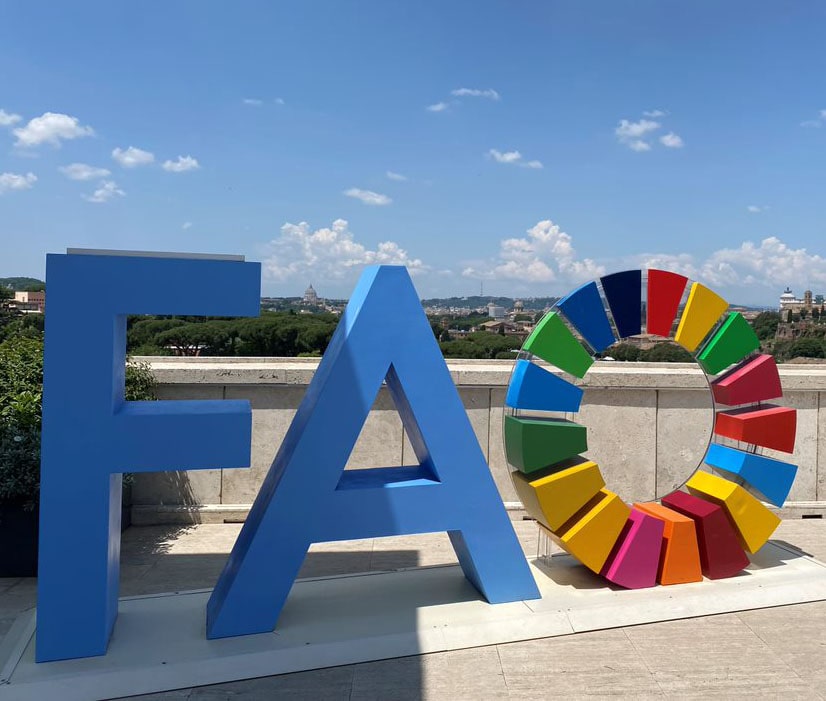
FAO, corallo sempre più sostenibile
Da sempre impegnata nella salvaguardia del corallium rubrum, Assocoral ha partecipato nella sede della FAO di Roma al tavolo di lavoro per la salvaguaradia del Corallo Rosso del Mediterraneo che si è tenuto il 22- 23 e 24 maggio scorsi e che ha visto uniti Università, centri di ricerca, enti governativi e ONG, di tutti i paesi che si affacciano nel mare nostrum. Erano presenti il Presidente Vincenzo Aucella ed il Vice Presidente Vicario Ciro Condito, da oltre 10 anni referente associativo di tutte le problematiche relative alla CITES (la convenzione di Washington che regola il commercio delle specie di fauna e flora a rischio) e al GFCM, Il General Fisheries Commission for the Mediterranean, organismo della FAO che ha come obiettivo principale quello di garantire la conservazione delle risorse marine vive e lo sviluppo dell’acquacoltura sostenibile nel Mediterraneo e nel Mar Nero.

Il tavolo ha evidenziato che per il continuo miglioramento della gestione della risorsa corallo è utile avere a disposizione i dati completi per ogni singola nazione che indichino esattamente il numero di licenze rilasciate ai sub autorizzati per la pesca, le quantità pescate, le dimensioni dei rami, i giorni effettivi di lavoro di ogni singolo sub. Fondamentale ai fini della salvaguardia della specie e della biodiversità resta anche la sorveglianza attenta delle dimensioni dei rami pescati nelle singole aree, in modo da verificare che la quantità dei rami sotto taglia (con dimensione inferiore ai mm 7) continui ad essere sempre inferiore al 10% e mai superiore al 25% del pescato totale, in modo da evitare che alcune aree risultino in sovrasfruttamento e conseguentemente vengano interdette alla pesca. Infine resta confermata la necessità di pescare sempre i coralli oltre i 50 metri di profondità, perchè come dimostrano gli studi, quelli pescati a profondità inferiori mostrano segnali evidenti di sofferenza.

Un resoconto di quanto discusso da tutti gli stakeholder intervenuti al panel di Roma sarà riportato alla Commissione Scientific Advisory Committee on Fisheries (SAC) on Mediterranean red coral che ne valuterà gli obiettivi futuri in termini di sostenibilità ed eventualmente integrerà ulteriori misure a salvaguardia del corallo.
Assocoral, at the GFCM working table.
Always committed to the preservation of corallium rubrum, Assocoral participated in the FAO headquarters in Rome at the working table that was held on May 22- 23- 24 and that united universities, research centers, government agencies and NGOs, from all countries bordering the Mediterranean Sea. In attendance were President Vincenzo Aucella and Deputy Vice President Ciro Condito, who for more than 10 years has been the association’s contact person for all issues related to CITES (the Washington convention that regulates trade in endangered species of fauna and flora) and the GFCM, The General Fisheries Commission for the Mediterranean, an FAO body whose main objective is to ensure the conservation of living marine resources and the development of sustainable aquaculture in the Mediterranean and Black Sea.
he table pointed out that for the continuous improvement of the management of the coral resource, it is useful to have complete data available for each individual nation showing exactly the number of licenses issued to divers authorized to fish, the quantities fished, the size of branches, and the actual days worked by each diver. Fundamental to the preservation of the species and biodiversity also remains the careful monitoring of the size of the branches fished in the individual areas, so as to verify that the amount of undersized branches (with size less than 7 mm) continues to be both always less than 10% and never more than 25% of the total catch, so as to avoid that some areas result in overfishing and consequently are banned from fishing. Finally, the need to always fish corals over 50 meters deep remains confirmed, because as studies show, those fished at shallower depths show signs of suffering.
A report of what was discussed by all stakeholders who spoke will be reported to the Scientific Advisory Committee on Fisheries (SAC) on Mediterranean red coral, which will evaluate its future goals in terms of sustainability and possibly supplement with additional measures to safeguard coral.

POST COMMENT
Devi essere connesso per inviare un commento.